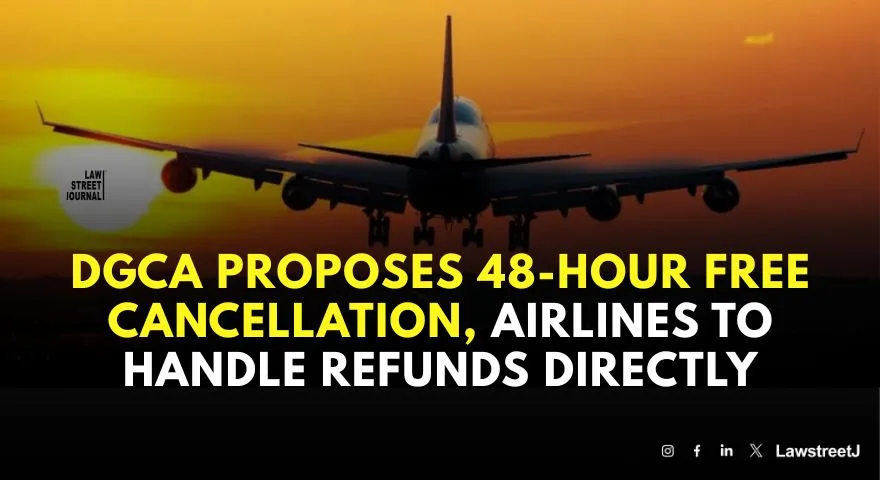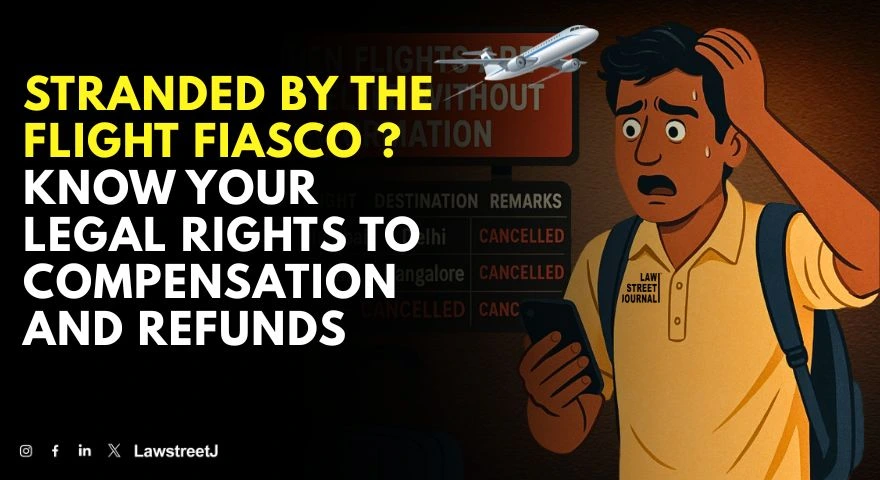New Delhi: The Directorate General of Civil Aviation (DGCA) has released a draft proposal to revamp India’s air ticket refund system. The regulator wants to simplify the process, protect passengers, and hold airlines directly accountable for refunds. The draft, published on November 4, suggests amendments to the Civil Aviation Requirements (CAR), Section 3, Series M, Part IV, which governs refunds for scheduled domestic and international flights. If accepted, the new framework will replace existing refund rules that have long been criticized for being complicated and inconsistent.
One of the biggest changes is a 48-hour window for passengers to cancel or modify tickets without paying any penalty. The DGCA calls it a “look-in period,” meant to protect travelers from sudden plan changes or accidental bookings. This rule would apply to tickets purchased directly from airlines or authorized agents. In addition, passengers would be able to correct spelling mistakes in their names within 24 hours of booking at no extra cost—a step that could end long-standing disputes over name correction fees that often range between ₹500 and ₹2,000.
Refund complaints, according to data from the Ministry of Civil Aviation, have risen sharply. Between January and September 2025, over 12,000 cases were registered—about 17% higher than the same period a year earlier. The regulator says the new proposal aims to reduce such grievances by making the refund process easier to understand and faster to complete.
Airlines to Be Liable in Third-Party Bookings
Another important clause in the proposal puts the refund responsibility squarely on airlines, even for tickets booked through online travel portals or agents. The DGCA clarified that travel agents function as representatives of airlines, so the carrier remains responsible for refunding the passenger directly. Airlines will have 21 working days to complete refunds after a cancellation. If a credit card was used for payment, the refund must go back to the same card or account.
This change is aimed at removing the confusion that passengers often face when refunds are delayed by intermediaries. Legal experts note that the provision aligns with the agency principle under the Indian Contract Act, 1872, which states that the principal (the airline) is liable for its agent’s actions. The adjustment, they say, may help reduce consumer disputes and refund-related court cases.
The DGCA has opened the proposal for public consultation until November 30, 2025. Airlines, passengers, consumer groups, and travel agents can send their feedback through the regulator’s official website. After the consultation period, the final version will be published in the Gazette of India. Once notified, the new rules will apply to all scheduled domestic and international flights operating within Indian jurisdiction. Airlines will then need to revise their ticketing systems, refund procedures, and customer service policies to ensure compliance. Officials said the initiative is part of a broader effort to improve transparency in India’s civil aviation sector, which has seen rapid passenger growth in recent years.
Part of DGCA’s Wider Consumer-Focused Reforms
Over the past few years, the DGCA has introduced several measures to make air travel more passenger-friendly. These include displaying cancellation charges upfront, setting clear compensation norms for flight delays, and ensuring refunds are processed on time in cases of cancellations due to operational disruptions. The new draft fits into this ongoing reform drive.
Officials said that while most airlines already offer limited refund flexibility, the lack of uniform rules often leads to confusion. The revised CAR norms are intended to create one consistent standard for all carriers. Analysts say the new refund model could affect how airlines manage revenue from cancellations and rebookings. Low-cost carriers, which often rely on such fees for non-fare income, may need to adjust their pricing strategies.
Despite this, experts believe the changes could ultimately strengthen passenger confidence. India’s aviation sector carried more than 150 million passengers during FY 2024–25, and regulators expect that number to keep rising. With the new rules, officials hope to improve transparency and make the refund process more predictable.





![Madras HC Questions DGCA’s Exemption Granted to IndiGo from Pilot Fatigue Management Norms [Read Order]](/secure/uploads/2026/01/lj_1849_Madras_HC_Questions_DGCAs.webp)




